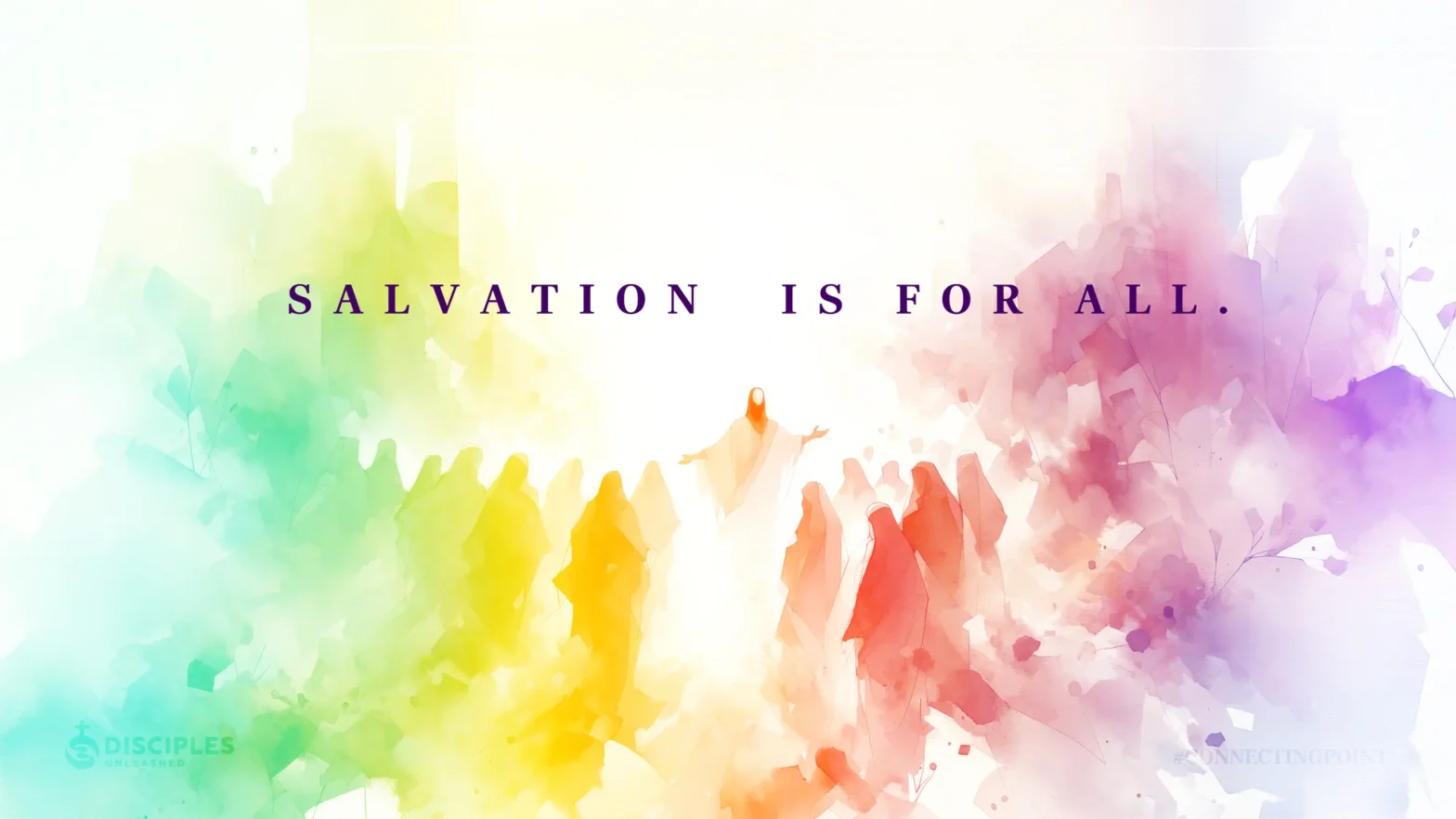At one time, I had a friend who left the Catholic Church to join a different denomination. We were talking one day, and she shared the theme of her pastor’s recent sermon involving the “narrow gate” mentioned in scripture (Matthew 7:14). His understanding was that salvation is only available to the few baptized Christians who have followed a particular understanding of scripture and the corresponding rules and practices stemming from that understanding. For him (and now her), the vast, vast majority of all humans—past, present, and future (Catholics included)—will not obtain salvation. As we talked, I kept thinking about the totality of Jesus’ message throughout his ministry, as well as today’s readings in particular. It seemed that my friend and her minister had fallen victim to the same kind of misinformation that we hear being sorted out in our first reading. I get it—lots of us wonder what we “need to do to get to heaven!” Luckily for us, each reading from today’s liturgy provides us with direction and the message that God’s love and salvation are open to all.
To begin, in the first reading, we hear that “the apostles and elders, in agreement with the whole church,” decided that becoming an adherent of the Jewish religion, through the act of circumcision, was not needed before becoming Christian. They explained that, while there were, and are, some “necessities” of the faith and a way of life that comes after becoming a believer, there need not be “any burden beyond these (later) necessities.” The doors are open. Jesus, and salvation through him, is available to everyone.
Further, as we sing our psalm for the week and hear the proclamation of our second reading, we are exposed to a universality in the words that shouldn’t be missed. The theme begins as we hear the psalmist urging, “May all the nations praise you!” and thus echoing Jesus’ desire for unity, “that they all may be one,” as found in John’s gospel. Doubling down on this theme, we hear the description of a city without a temple, “for its temple is the Lord God almighty and the Lamb.” This means that faith, through worship in a specific temple, isn’t tied to a geographical location. Wherever you are, whenever you want, you can call upon God the Father, Jesus, and even the Holy Spirit. It is this desire for a worldwide, truly “catholic” church (note the lowercase “C”) that we proclaim every week when we recite the Creed! These statements affirm that God’s love, mercy, and care for us aren’t limited—they’re for the whole world.
Finally, we hear again, in the gospel, that Jesus invites everyone to the gift of faith and salvation. He says, “Whoever loves me will keep my word, and my Father will love him, and we will come to him and make our dwelling with him.” This freely given invitation to open our hearts to God’s presence through the indwelling of the Spirit is one that anyone can take advantage of. It is our limited, human hearts that often build obstacles to Christ’s presence. Again, it is good for us to remember that those obstacles aren’t coming from God. God loves you and wants to be with you, now and forever. The gift of the Spirit is open and available to all.
Let us all remember that God’s salvation is for everyone, no matter who they are. As we move through this week, may our focus be on God’s gift of the Spirit dwelling within us and his love that deems us all worthy of that presence.


